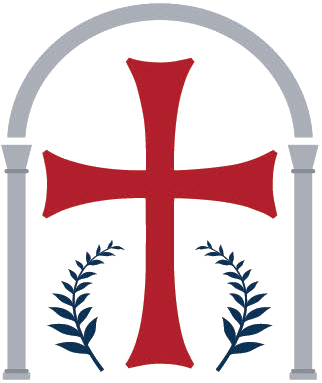
The Institute for the Study of Eastern Christianity
at The Catholic University of America
From its origins, the center of Christian culture lay in the region of the eastern Mediterranean. Spreading from Judaea via book and missionary, at its furthest, eastern Christianity stretched from Kyiv to modern Iraq and western China. At its height, this culture understood itself as katholikê: world-wide.

The Byzantine tradition encompasses both Orthodox and Catholic Churches, with Constantinople as its birthplace. Orthodox Churches consider the Patriarch of Constantinople as the foremost among equals, while the Greek Catholic or Byzantine Catholic Churches originated from the Orthodox tradition but now have ties with Rome. As the biggest Eastern Christian tradition, the Byzantine tradition has played a significant role in shaping Christian theology, asceticism, liturgy, and art.

Egyptian Christianity is rooted in St. Mark the Evangelist's missionary work in Alexandria, where he was martyred. The city became a theological center with early theologians such as Clement, Origen, Athanasius and Cyril of Alexandria. The monastic tradition of Egypt, exemplified by figures like Anthony the Great and Pachomius, became a model for Christian monasticism. The Coptic Church inherited this monastic tradition and the experience of martyrdom, which influenced its theology, spirituality, and liturgy.

The arrival of Apostles Bartholomew and Thaddeus in the first century is a longstanding Armenian tradition, though evidence of Christian missions and church establishment only emerges in the early fourth century. In 301, King Trdat became the first monarch to embrace Christianity as the state religion, following his baptism by St. Gregory the Illuminator. As a hub for empires and trade routes, the Armenian Christian tradition embodies eclecticism and resilience, exemplified in its liturgy, which creatively fuses Byzantine, Latin, East Syrian, Hagiopolite, and Cappadocian influences. The Armenian Church is a non-Chalcedonian community with a substantial global diaspora.

The East Syriac, West Syriac, and Maronite faiths, rooted in ancient Syria and Iraq, have distinct origins and geographic centers. The East Syriac tradition emerged in Edessa and Nisibis, unique in its Syriac-speaking community without Greek foundation. The West Syriac tradition includes non-Chalcedonian Christians with liturgy influenced by Jerusalem and Syriac poetry. The Maronite tradition reflects West Syrian, East Syrian, and Jerusalem influence, and is the only Eastern Christian tradition in constant union with Rome, with recent restoration of Syrian heritage.
News

Events
Fr. Stefanos Alexopoulos participated in an online symposium organized by the educational office of the Greek Embassy exploring Byzantium’s cultural heritage. His presentation was titled: “The Byzantine Liturgical Tradition and Modern Challenges.” Over 75 Greek educators teaching for the Greek Ministry of Education attended.
The Catholic University of America and the Coptic Orthodox Church deepened their relationship on Nov. 5, with the conferral of an honorary degree and the signing of a memorandum of understanding between the University and St. Athanasius and St. Cyril Coptic Theological School (ACTS) in Los Angeles.
The late Prof. Thomson was the Calouste Gulbenkian Professor of Armenian Studies at Oxford University, and his family graciously donated his personal research library to the Semitics Department/ICOR Library of The Catholic University of America.
Twenty-two world-class scholars examine the riches of the Alexandrian liturgical tradition
Maranci spoke to over 150 people in Heritage Hall, some of whom had come from as far as New York and Boston, on the development of Armenian art, architecture and literature in relation to neighboring cultures.
ISEC Associated Faculty
The expertise and insights of our world-class faculty are highly respected by scholars, researchers, and practitioners around the globe.
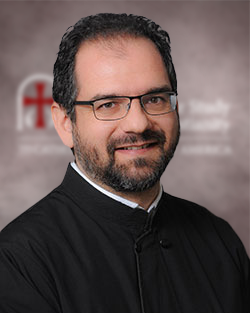
Rev. Dr. Stefanos Alexopoulos, Ph.D.
Associate Professor of Liturgical Studies and Sacramental Theology
Dr. Monica Blanchard, Ph.D.
Curator, Semitics/ICOR Library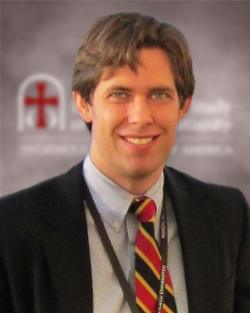
Dr. Aaron Butts, Ph. D.
Andrew W. Mellon Chair of Early Christian Studies and Associate Professor of Semitics
Dr. Robin Darling Young, Ph.D.
Associate Professor of Church History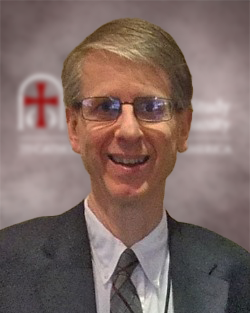
Dr. William Klingshirn, Ph.D.
Margaret H. Gardiner Professor of Greek and Latin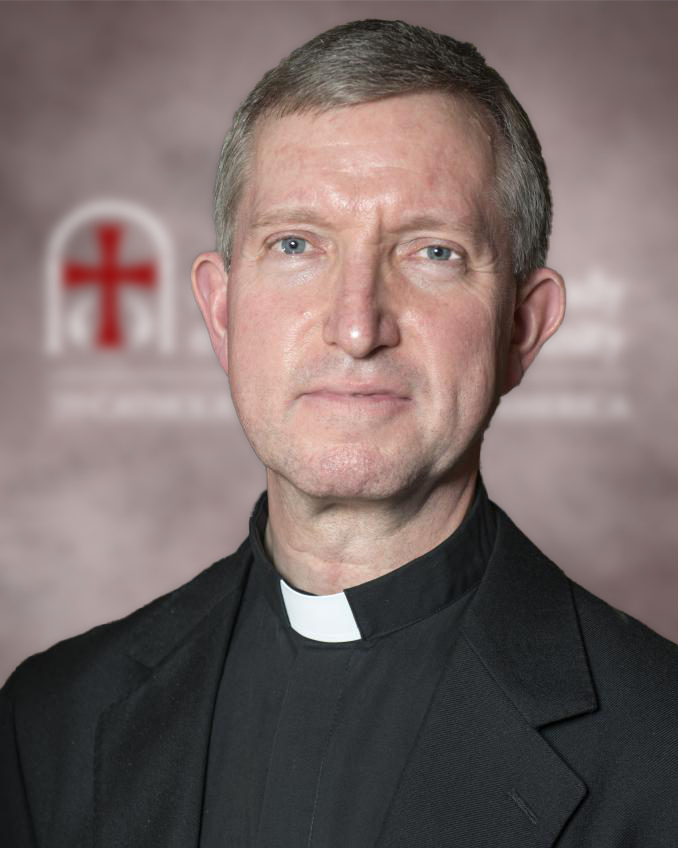
Rev. Msgr. Dr. Paul McPartlan, S.T.L., D. Phil.
Carl J. Peter Professor of Systematic Theology and Ecumenism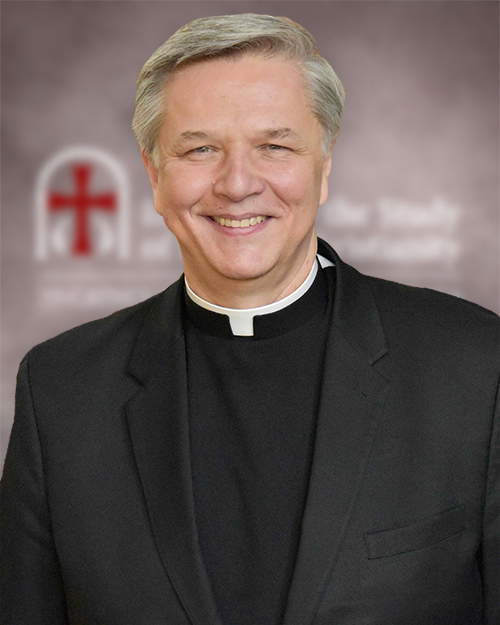
Very Rev. Mitered Archpriest Dr. Mark M. Morozowich, S.E.O.D.
Associate Professor of Liturgical Studies and Sacramental Theology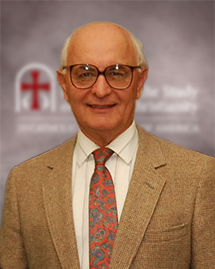
Dr. Shawqi Talia, Ph.D.
Senior Lecturer, Semitics
Dr. Janet Timbie, Ph.D.
Adjunct Associate Professor of Semitics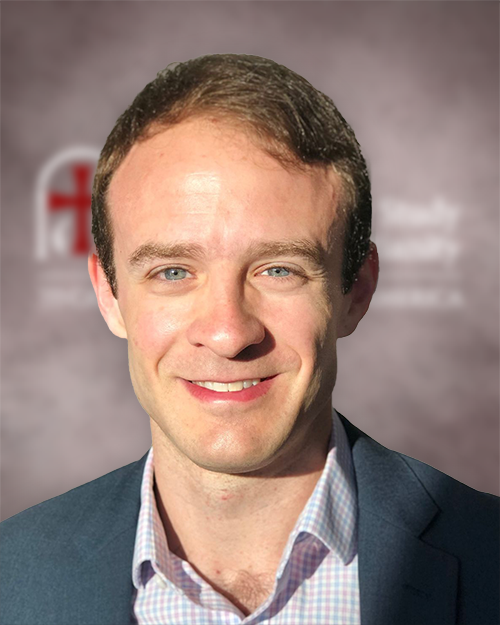
Dr. Lev Weitz, Ph.D.
Associate Professor of Semitics
Dr. Susan Wessel, Ph.D.
Moran Professor of Early Church HistoryLatest publications
Introduction to Eastern Christian Liturgies
Fr. Alexopoulos and Maxwell E. Johnson fulfill the need for a new, comprehensive, and straightforward survey of the liturgical life of the Eastern Christian Churches within the seven distinct liturgical Eastern rites still in existence today: Armenian, Byzantine, Coptic, Ethiopic, East Syrian, West Syrian, and Maronite.
The Canonization of the Greek Martyrs of 1922: Is it a Novelty?
Explorations in Eastern Christian Liturgy:This volume brings together a selection of contributions from society members that germinated from papers delivered at the SOL congress gathered in Etchmiadzin, Armenia in September 2016. The chapters reveal new and original research on a variety of topics pertaining to Eastern liturgical rites.
The Use of the Bible in Byzantine Liturgical Texts and Services
Oxford Handbook of the Bible in Orthodox ChristianityThis chapter explores the relationship between the Bible and Liturgy in the Orthodox Church. It argues that the Bible occupies a place of paramount importance in Byzantine liturgy, and that the Bible is everywhere, permeating all aspects of the life of the church, especially its liturgical life.
Prayer at the Eucharist: Shifts in the Use of Scripture
Liturgische Bibelrezeption: Dimensionen und Perspektiven interdizilinärer ForschungThis anthology bundles the methodological perspectives of biblical and liturgical studies, patristics, and musicology, as well as innovative approaches to codicology and material culture.
Synaxis
Reallexikon für Antike und ChristentumThe Real Lexicon for Antiquity and Christianity is the central and comprehensive encyclopedia for research into the interactions between early Christianity and paganism and Judaism in antiquity.
Die Liturgie in den Östlichen Kirchen
Handbuch der Liturgiewissenschaft Gottesdienst der KircheThe manual therefore represents the current state of research in liturgical science and offers - also by means of comprehensive literary references - the now so important basic information.

Help fund ISEC
Donating to the Institute for the Study of Eastern Christianity supports the preservation and dissemination of knowledge about Eastern Christian histories and cultures, contributing to the promotion of mutual understanding and respect among peoples of diverse faiths and backgrounds.
 More
More
